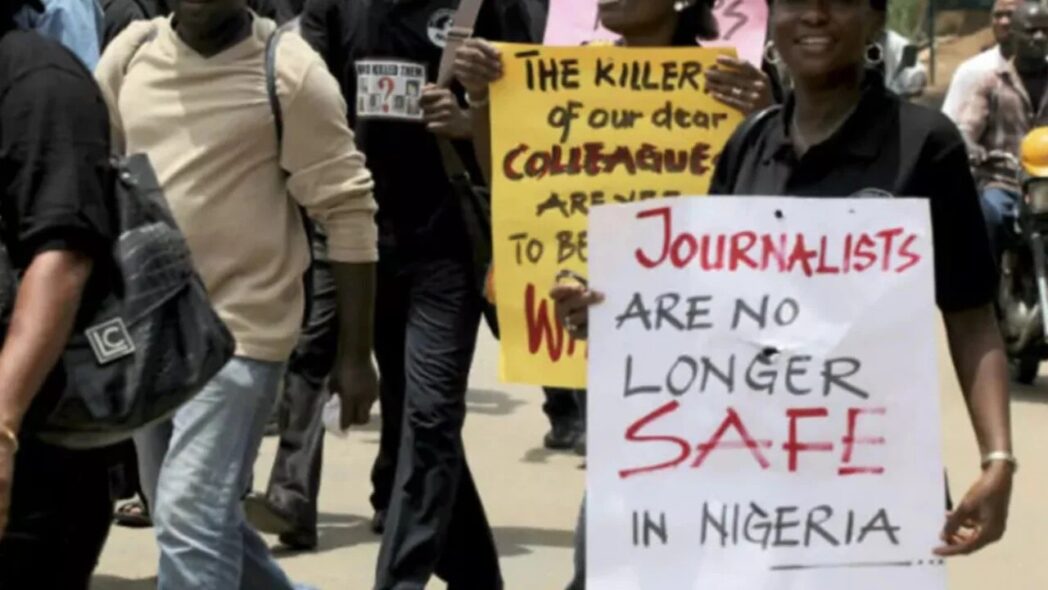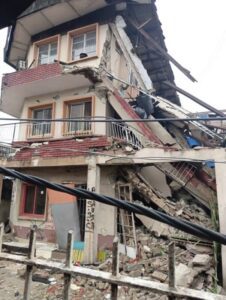
Press freedom amid rising journalist arrests
The alarming increase in the arrest and detention of journalists in Nigeria has become a pressing issue, casting a dark cloud over the country’s commitment to press freedom and democratic values. This recent surge in attacks on media professionals not only threatens the health of Nigeria’s democracy but also undermines the essential role that a free and independent press plays in society.
Press freedom is a fundamental pillar of democracy, serving as a check on power and a means of ensuring that the public remains informed and engaged. In Nigeria, where journalists often operate under challenging and sometimes dangerous conditions, these freedoms are crucial for uncovering corruption, holding officials accountable, and fostering a transparent government. The recent crackdown on journalists is thus a grave concern, signalling a potential shift towards greater suppression of dissent and a reduction in the public’s access to critical information.
The arrest of journalists, particularly those investigating sensitive issues such as government corruption or human rights abuses, is not just an attack on individuals but an assault on the democratic fabric of the nation. When reporters are targeted, it sends a chilling message to others who might seek to challenge the status quo or expose wrongdoing. This climate of fear can lead to widespread self-censorship, where journalists and media organisations shy away from reporting on important issues for fear of retaliation. The result is a less informed public and a weakened system of checks and balances that is vital for democratic governance.
FG must recognise the crucial importance of press freedom as enshrined in both national and international legal frameworks. The constitution guarantees freedom of expression, and Nigeria is a signatory to various international treaties that uphold the right to a free press. However, recent actions suggest a troubling trend towards restricting these freedoms under the guise of ‘national security or public order.’ While maintaining public safety is important, it should not come at the expense of fundamental rights. A careful balance must be struck to ensure that measures taken to safeguard security do not infringe upon press freedoms or result in the undue persecution of journalists.
To address this crisis effectively, several immediate and long-term actions are necessary. First and foremost, the immediate release of journalists who are currently detained should be prioritised. These individuals should not face arrest or harassment for performing their essential duties. Any legal or investigative actions taken against them must be conducted transparently, with respect for their rights and due process. It is crucial that the government ensures accountability for any unlawful actions against media personnel and that those responsible are held to account.
In addition to immediate actions, there must be a concerted effort to reform the legal and regulatory environment governing press freedom. This involves revisiting and amending laws that may be used to unjustly target journalists or restrict media operations. Legal reforms should aim to align Nigeria’s framework with international standards that protect media independence and freedom of expression. This includes ensuring that any limitations on press freedom are clearly defined, proportionate, and subject to judicial oversight.
Supporting media organisations and promoting their independence is also essential. The government and other stakeholders should work to create an environment where media entities can operate without undue interference or pressure. This involves providing financial and institutional support to media organisations to help them maintain their independence and ability to report effectively.
Open dialogue between the government and media representatives is critical for addressing current tensions and building trust. Engaging in constructive conversations about the challenges facing the press and the government’s concerns can lead to mutual understanding and cooperation. It is important for both parties to collaborate on finding solutions that uphold democratic values while addressing legitimate security concerns.
Public awareness and support for press freedom play a significant role in reinforcing its importance. Educating citizens about the role of the media in democracy and the risks posed by restrictions on press freedom can foster a more engaged and informed public. Civil society organisations, advocacy groups, and international partners can help raise awareness and advocate for reforms to protect journalistic freedoms.
The recent arrests of journalists in Nigeria highlight a critical need to safeguard press freedom and uphold democratic principles. Protecting the rights of journalists is essential for maintaining transparency, accountability, and public trust in the government. Nigeria must take decisive action to ensure that press freedom is preserved, both through immediate measures to address current abuses and through long-term reforms to support a free and independent media. By doing so, the country can reaffirm its commitment to democratic values and ensure that its citizens continue to benefit from a robust and vibrant press.




